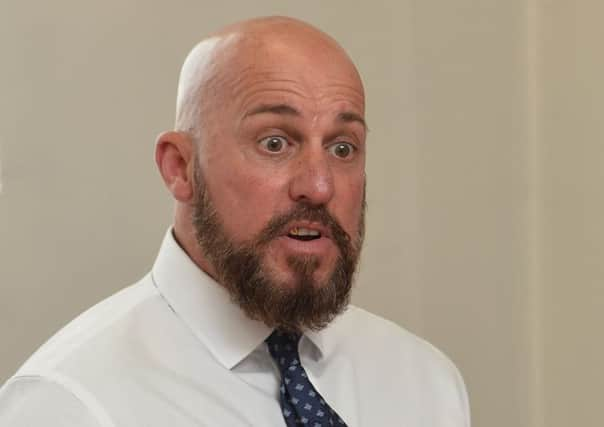Dee Stitt: ex-UDA prisoner defends robbery as '˜necessary'


His father was already a member and the 47-year-old takes little personal responsibility for his decision to join, presenting it as almost inevitable.
He claims to have left in 1992, several years before he was jailed for involvement in a robbery on behalf of the UDA.
Advertisement
Hide AdAdvertisement
Hide AdAsked when he left, he said: “Well, listen, here – the bottom line is ... you know, if I turned round and said to you, you know, if I answered that question, that question could put me in prison, you know, so obviously I’m saying that I was ...”
Surely it would only put him in prison if he answered it a certain way? He replied: “That’s what I’m saying. I was in the UDA before it was proscribed [1992]. After it was proscribed, I left the UDA. Simple. Simple. But I was still involved with the organisation.”
He said that he “played a meaningful role” in UDA decommissioning in 2009 and that he still has “connections with the UDA”, with some of his best friends in the group, adding: “I still have a role with the organisation, or a relationship with the organisation, to advise them on transition.”
When asked if he regrets his armed robbery, he said: “Do I regret what I did? It was a necessary thing during the conflict. You know, we were out getting funds for the organisation to arm the organisation. That’s the bottom line. If I have hurt anybody in the process of that, I regret it as a human being – definitely, 120%.”
Advertisement
Hide AdAdvertisement
Hide AdWhen it is put to him that he made a choice and others around him made the choice not to join illegal organisations, he said: “The bottom line is this: See if you were living in a working-class area, you were going to be involved in a paramilitary organisation.”
Everyone?
He said that at high school in fourth or fifth year he believes that out of 100 boys just 15 or 20 were not involved in paramilitarism. “If you were living in a working-class area, how were you not affected by conflict? How would you not be involved in conflict?”
He said that now “I reflect on my past and I regret some of the things that I did. I’m not a robot ... I see this pathway that I’ve chosen through Charter as giving something good back to my community and trying to right ... I was part of the problem and now I believe I can be part of the solution.”
Laughing, he added: “If I’m left alone to do that.”